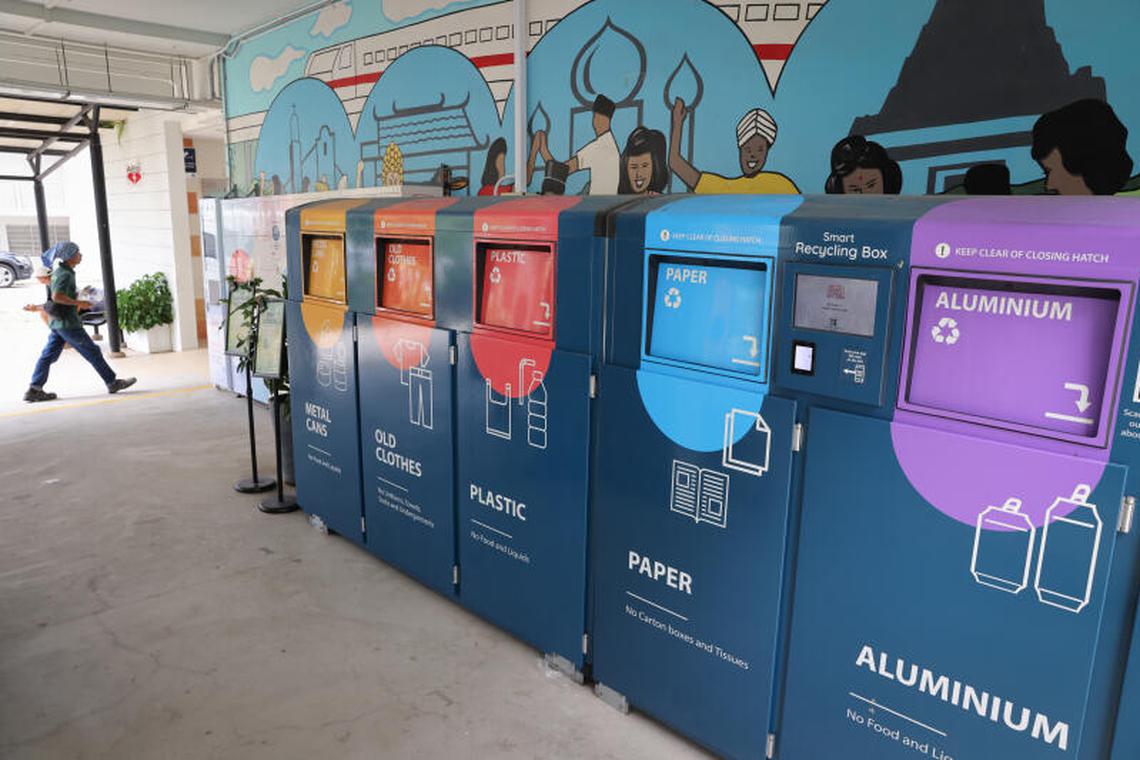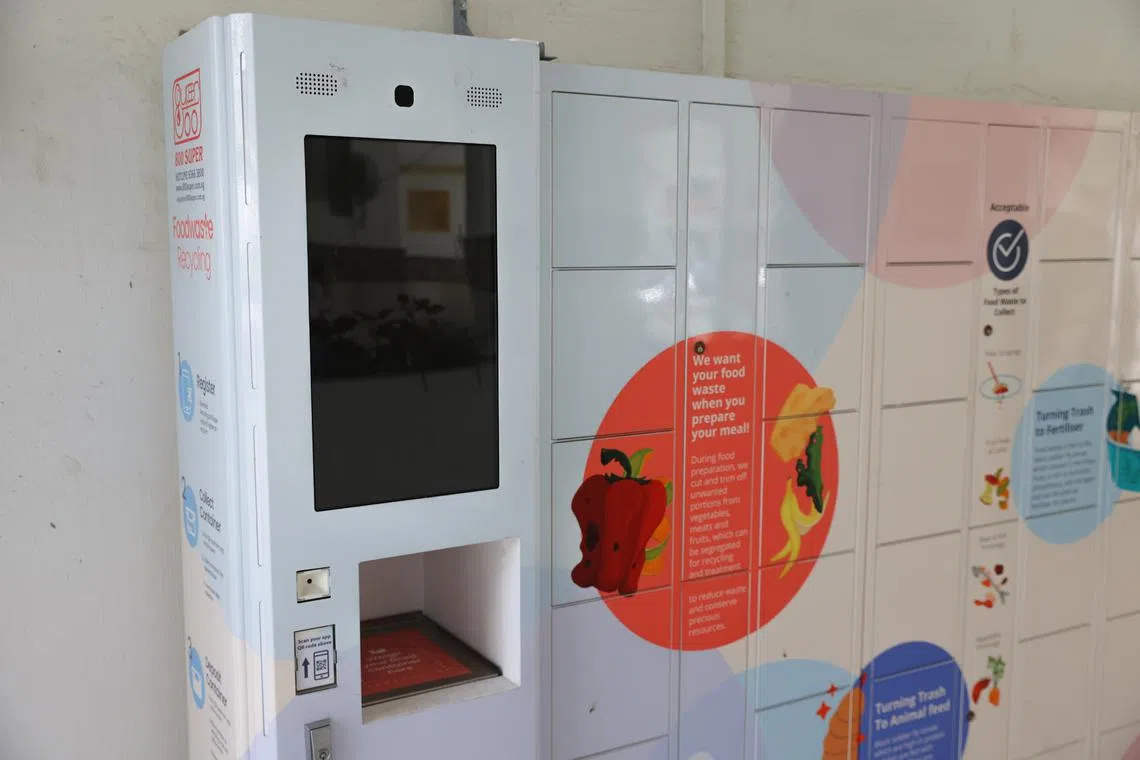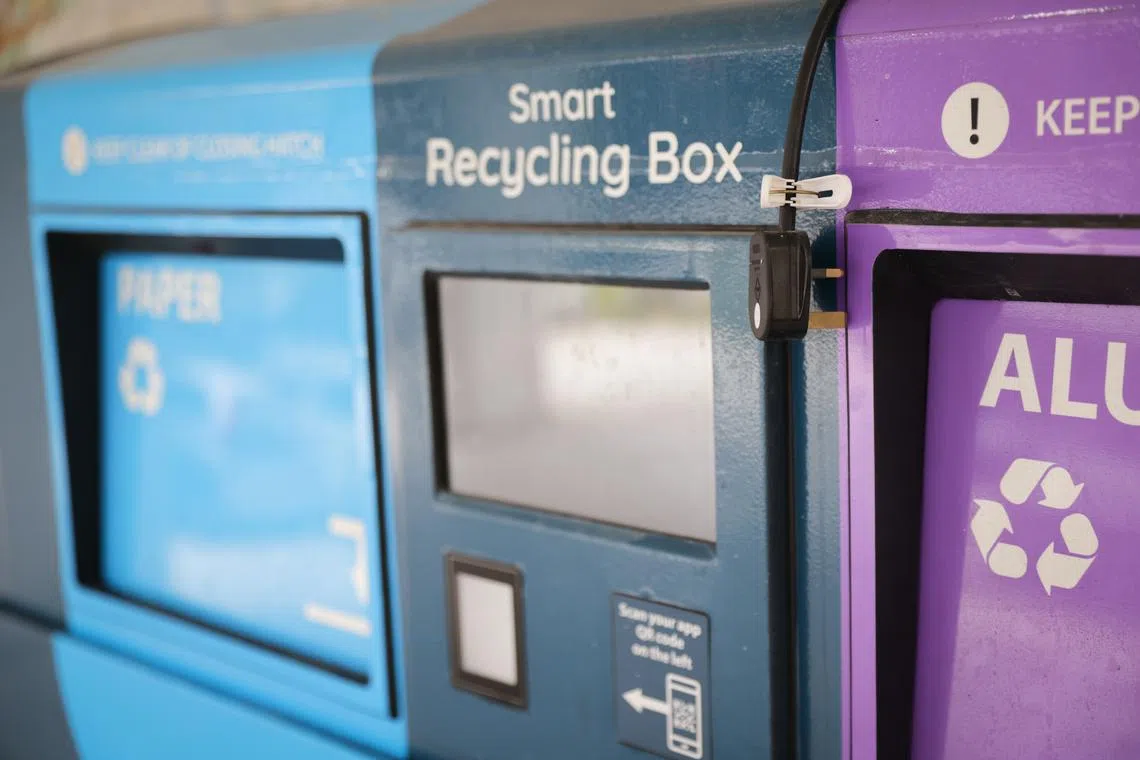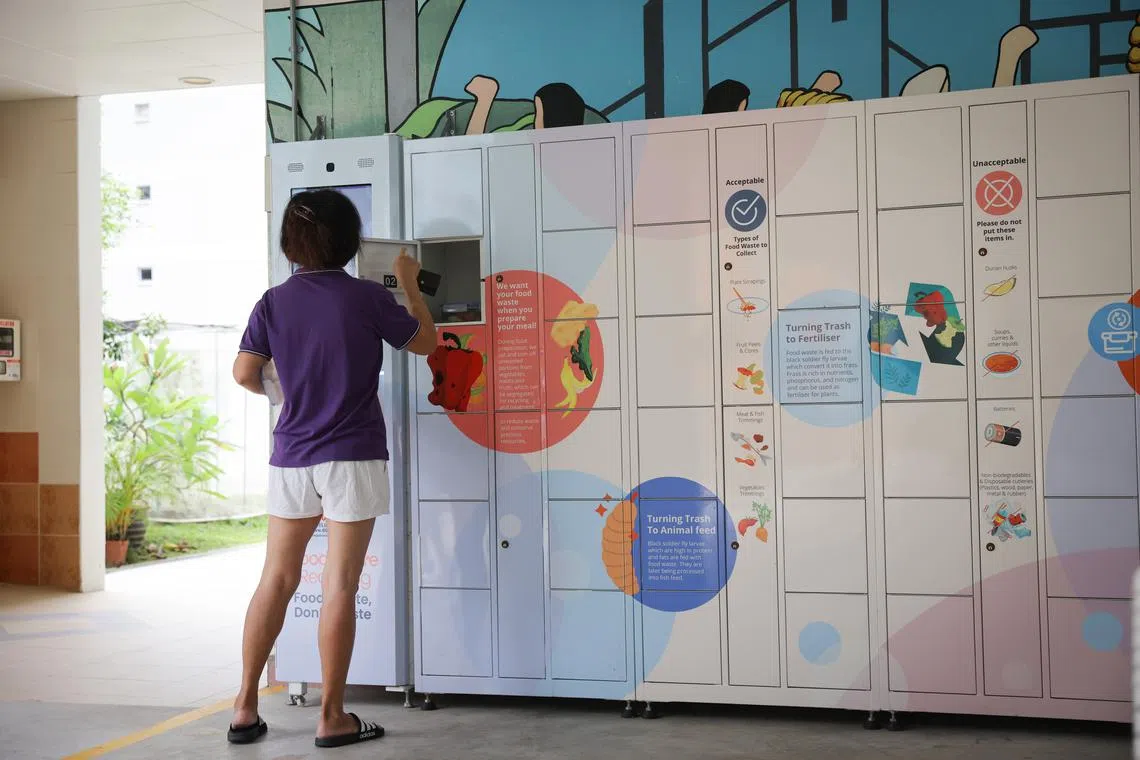Smart recycling boxes that reward residents for sorting waste have cut contamination rate
Sign up now: Get ST's newsletters delivered to your inbox

To use the smart boxes, residents have to download an app and sign up for an account.
ST PHOTO: ONG WEE JIN
SINGAPORE - A trial in Bishan and Sin Ming to collect recyclables using smart boxes has managed to cut the contamination rate of their contents to just 5 per cent – far lower than the national average of 40 per cent.
The ongoing trial by waste management company 800 Super, which began in April 2022, collects paper, plastic, aluminium, metal cans, old clothing and glass, and awards points to residents for depositing these separately. The points can be exchanged for supermarket vouchers.
Ten smart boxes have been set up around the areas, but only half have been working since the start of the trial.
Each material is collected separately in the smart box’s different compartments, as opposed to Singapore’s usual method of collecting different types of recyclable materials together in a single large blue bin.
Recyclables contaminated by remnants of food and drink, tissue paper and other items cannot be recycled. The low contamination rate at these smart boxes means 95 per cent of what is collected can be successfully recycled.
To use the smart boxes, residents have to download an app and register an account.
The app generates a personalised QR code that the user must scan at the recycling boxes, before selecting which category of recyclable items they wish to deposit. The corresponding compartment will then open.
“These smart boxes force people to be more disciplined when they have to sort their recyclables according to the categories shown on the boxes,” said resident Glen Chow, a 32-year-old retail assistant who started using the smart recycling boxes in January.
“This makes it better than the blue bins, which tend to fill up more quickly, and sometimes get used as a rubbish bin to throw any kind of waste.”
The National Environment Agency (NEA), which oversees Singapore’s waste management, told The Straits Times that 600kg of recyclables on average have been collected each month from each location.
Residents earn points based on the type and weight of materials recycled. For example, every kilogram of glass, paper and aluminium deposited earns the user 5, 15 and 80 points respectively. The boxes are equipped with weighing scales.
Users can redeem a $10 supermarket voucher for 1,000 points.
Trialled alongside each smart recycling box is a food waste recycling locker. Users can put food scraps like fruit peel, fish and meat trimmings in airtight containers provided and weigh them before placing them into the locker. Five points are awarded for every 500g of food waste collected.

At this food waste recycling locker, users can put food scraps in airtight containers provided, weigh them and place them into the locker.
ST PHOTO: ONG WEE JIN
The food waste is fed to black soldier fly larvae, which are later frozen and used as fish feed.
The flies also help convert the waste into frass, the solid excreta of insects, which can be used as plant fertiliser.
NEA said an average of 150kg of food waste is collected each month, per location.
Ms Alice Leong, a 70-year-old retiree, said she could put her food waste to good use with the lockers, while earning supermarket vouchers.
However, some residents ST spoke to struggle to use the tech-enabled bins. Of the 16 residents interviewed, five did not know how to use the bins, while four had problems using the app.
One of them, Ms Lena Kwek, could not log in to the app for the recycling container. After repeated attempts and a failed go at resetting her password, she decided to take her recyclables back to her flat.
She said: “I’ve got no choice. I can’t just leave it here and dirty the place.”

Some residents ST spoke to said they do not know how to use the tech-enabled bins.
ST PHOTO: ONG WEE JIN
NEA said half of the boxes and lockers set up are not in operation due to adjustments that 800 Super was making to the software.
At Block 145 Bishan Street 11, residents told ST that the boxes had been there for months but remain powered down.
Said a resident who wanted to be known only as Mr Kumar: “If it’s not working, the company should have put up a sign saying so.”
The 56-year-old public servant added: “What if people take their stuff down to recycle (at the smart boxes), and then they find out that it’s not working? I think they will just dump their recyclables as waste.”
800 Super did not reply to ST’s request for comment.

A resident using the food waste recycling locker at Block 112 Bishan Street 12.
ST PHOTO: ONG WEE JIN
NEA said the waste management provider plans to conduct a survey in July 2023 to seek residents’ feedback on the initiative. If the trial is successful, 800 Super may expand it to more locations in the Ang Mo Kio – Toa Payoh sector.
Professor Seeram Ramakrishna, who chairs the Circular Economy Taskforce at the National University of Singapore, said: “The smart recycling boxes are a step forward in encouraging Singaporeans to recycle more and to sort their items, which are much needed to bump up Singapore’s domestic recycling rate.”
Noting that not all Singaporeans are tech-savvy, he added: “Community volunteers, social media publicity and other community events will enable more people to embrace the high-tech solutions. For real change to happen, people across all demographics will have to be educated on such initiatives.”


